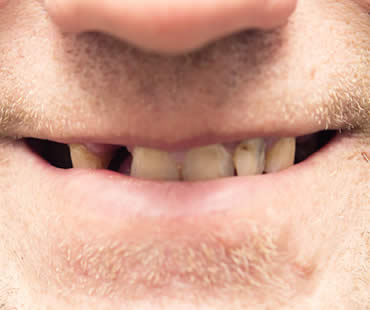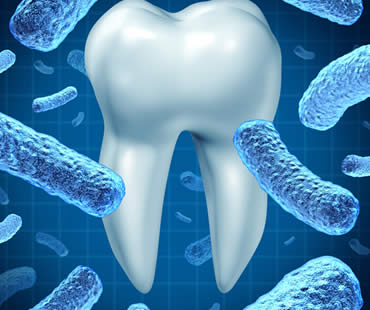
by Dr. Adkins | Oct 19, 2023 | Blog, Dental Information, Dental Topics 4
The True Cost of Neglecting Oral Hygiene
Maintaining good oral hygiene is essential to overall health and wellbeing. It’s not just about having a bright, healthy smile, but neglecting your dental health can lead to serious health problems.
Poor oral hygiene is linked to gum disease, tooth decay, and even heart disease. Studies have also shown that poor dental hygiene can increase the risk of cancer and Alzheimer’s disease.
The Importance of Oral Hygiene
Oral hygiene refers to the practice of keeping our mouth clean and healthy through regular brushing, flossing, and rinsing with mouthwash. Good oral hygiene prevents tooth decay, gum inflammation, bad breath or halitosis as well as other dental issues which could lead to serious medical conditions.
Dental experts recommend brushing at least twice a day for two minutes each time and flossing daily in order to remove bacteria from the mouth that cause plaque build-up. Regular dentist visits are also crucial in maintaining good dental health as they help catch any potential issues before they turn into larger problems.
Neglect Can Lead To Serious Health Problems
Neglecting your oral hygiene routine may seem like a minor issue at first but it can lead to serious problems down the road. Gum disease is one of the most common issues that result from poor oral care. Symptoms include swollen gums, bleeding while brushing or flossing, sensitive teeth and receding gums.
If left untreated over time periodontitis (advanced gum disease) can occur which leads ultimately leads to tooth loss as well as more severe medical conditions such as diabetes or heart disease. it’s clear that taking care of our teeth is important not only for aesthetic reasons but for overall physical health.
Neglecting our oral hygiene routine can lead to serious health problems down the line. It’s important to make dental care a priority in our daily lives by brushing, flossing, and visiting the dentist regularly.
High Level Overview of Oral Hygiene
Definition of oral hygiene
Oral hygiene refers to the practice of maintaining clean and healthy teeth, gums, and tongue. It involves daily routines such as brushing and flossing, as well as regular visits to the dentist. Good oral hygiene is essential for preventing tooth decay, gum disease, bad breath, and other dental problems that can lead to more serious health issues.
Importance of brushing and flossing regularly
Brushing your teeth twice a day is a fundamental part of oral hygiene. It helps remove plaque – a sticky film of bacteria – from the surface of your teeth.
Flossing once a day ensures that you clean between your teeth where your brush cannot reach. This prevents the buildup of plaque in those hard-to-reach areas.
Regular brushing and flossing also help prevent cavities from forming by removing food particles from in between teeth where bacteria can thrive. Furthermore, it helps keep gums healthy by massaging them and increasing blood flow.
How to choose the right toothbrush and toothpaste
Choosing the right toothbrush is just as important as brushing itself. You should opt for a soft-bristled brush with a small head that can easily reach all areas inside your mouth.
Toothpaste should contain fluoride – an essential mineral that helps strengthen tooth enamel – but avoid products containing harsh abrasives or detergents that could damage your enamel or irritate your gums. When selecting either product you should always read labels carefully before making any purchases.
The Benefits of Using Mouthwash
Mouthwash is an important tool in maintaining good oral hygiene. It not only freshens your breath but also reduces the amount of plaque and bacteria in your mouth, preventing gum disease and tooth decay.
Some types of mouthwash even contain fluoride, which can help strengthen tooth enamel and prevent cavities. However, it’s important to use mouthwash correctly.
You should swish it around in your mouth for at least 30 seconds before spitting it out. Be careful not to swallow it, as some types of mouthwash contain alcohol or other harmful ingredients that can be harmful if ingested.
The Importance of Tongue Cleaning
Many people focus solely on brushing their teeth and neglect their tongue, but cleaning your tongue is just as important for maintaining good oral hygiene. The tongue harbors bacteria that can lead to bad breath and even periodontal disease if left unchecked.
To clean your tongue properly, use a tongue scraper or the bristles on the back of your toothbrush to gently remove any debris or bacteria from the surface. Be sure to clean all areas of the tongue, including the back and sides.
How to Properly Clean Your Braces or Dentures
If you wear braces or dentures, it’s essential to care for them properly in order to maintain good oral health. For braces, use a special orthodontic brush with soft bristles to clean around the brackets and wires.
Floss threaders can be used to floss between teeth and under the wire. For dentures, rinse them after every meal with water or a mild soap solution before brushing them with a soft-bristled brush and non-abrasive cleaner specifically designed for dentures.
Avoid using regular toothpaste on dentures as they may be too abrasive. Taking care of oral hygiene requires more than just brushing and flossing.
Using mouthwash, cleaning your tongue, and properly cleaning braces or dentures are all important aspects of maintaining good oral health. With proper care and attention, you can prevent gum disease, tooth decay, and other serious oral health problems.
The Impact of Diet on Oral Health
Your diet plays a crucial role in maintaining good oral hygiene. Eating foods high in sugar and carbohydrates can cause tooth decay, cavities, and gum disease. Bacteria in the mouth consume sugar and produce acid that destroys the enamel on your teeth.
It is important to limit your intake of sugary snacks, soft drinks, and candy. Instead, incorporate a balanced diet with plenty of vegetables, fruits, whole grains, lean proteins, and low-fat dairy products.
How Saliva Plays a Role in Maintaining Good Oral Hygiene
Saliva is often overlooked when considering oral hygiene but it plays an important role in keeping your mouth clean and healthy. Saliva helps to neutralize acids produced by bacteria in the mouth that can cause tooth decay. It also helps to wash away food particles and debris from teeth and gums.
Additionally, saliva contains enzymes that break down food before it enters the stomach. A dry mouth lacks saliva which can lead to bad breath or halitosis.
The Connection Between Oral Health And Overall Well-Being
Good oral health is not just about having a pretty smile; it has been linked to overall well-being as well. Studies have shown that poor oral hygiene can lead to other serious medical conditions such as heart disease, diabetes, respiratory infections and even Alzheimer’s disease. Poor dental care allows harmful bacteria from your mouth into your bloodstream which can affect other parts of the body leading to various complications.
paying attention to small details like diet or saliva generation may seem insignificant but they play an important role in promoting good oral hygiene. Neglecting any aspect may lead to serious complications eventually affecting overall health which emphasizes why one should not ignore their dental needs!
The Importance of Not Ignoring Oral Hygiene
Oral hygiene is not something to be taken lightly. Maintaining good oral hygiene can prevent serious health problems and ensure a better quality of life.
Neglecting your teeth and gums can lead to tooth decay, gum disease, and even tooth loss. Additionally, poor oral health has been linked to other health issues such as heart disease, diabetes, and respiratory infections.
Ways to Improve Your Daily Routine for Better Dental Care
There are several ways to improve your daily routine for better dental care. First and foremost, it is important to brush your teeth at least twice a day with fluoride toothpaste. Use a soft-bristled brush and replace it every three to four months or when the bristles become frayed.
Flossing at least once per day will help remove food particles between your teeth that brushing cannot reach. Another way to improve your dental care routine is by using mouthwash after brushing and flossing.
Mouthwash helps kill bacteria in your mouth that can cause bad breath and gum disease. It is also important to pay attention to what you eat as diet plays a significant role in maintaining good oral hygiene.
Limit sugary drinks and snacks as they contribute significantly to tooth decay. Regular visits with your dentist are important for maintaining good oral hygiene.
Your dentist can check for any signs of gum disease or other dental issues before they become more serious problems. Incorporating these simple steps into your daily routine will help ensure healthy teeth and gums for years to come!
Do you live in McDonough or the surrounding area? Our team is ready to help you achieve your smile goals. Schedule your appointment today.

by Dr. Adkins | Oct 12, 2023 | Blog, Dental Information, Dental Topics 4
Being overweight or obese is a growing health problem around the world.
According to the World Health Organization, obesity rates have tripled since 1975, and in 2016, over 1.9 billion adults were overweight, with more than 650 million of them being obese. Obesity can lead to various health issues such as cardiovascular diseases, diabetes, and even cancer.
However, one of the lesser-known consequences of obesity is its impact on oral health. In this article, we’ll discuss how obesity affects oral health and what you can do to maintain good oral hygiene habits while managing your weight.
Brief Overview of Obesity and Its Impact on Overall Health
Obesity is a medical condition marked by excess body fat that may negatively affect an individual’s health. Being overweight or obese puts a strain on the body’s organs and systems, leading to various medical conditions that can be severe or even life-threatening.
For instance, having excess body weight increases the risk of developing type-2 diabetes as it puts more pressure on the pancreas to produce insulin. Similarly, high levels of cholesterol in the blood due to being obese can increase an individual’s risk of developing heart disease.
The Connection Between Obesity and Oral Health
While many people are familiar with how obesity affects overall health outcomes like heart disease or type-2 diabetes, fewer people are aware of how it impacts oral health as well. Research has shown that there is a direct correlation between an individual’s weight and their oral health status.
Being overweight or obese increases inflammation throughout the body which makes it harder for wounds to heal properly—including those in your mouth like gum tissue inflammation known as periodontitis—leading to further complications like tooth decay or loss. Obese individuals have higher levels of bacteria in their mouths than healthy-weight individuals because they tend to eat more sugary foods that promote bacterial growth.
Additionally, obese individuals are more likely to have dry mouth or xerostomia (a condition in which there is a reduction in the production of saliva) that can increase their risk of developing tooth decay. In the next section, we’ll delve deeper into the link between obesity and oral health.
The Link Between Obesity and Oral Health
Obesity is a serious health condition that can lead to a wide range of negative health outcomes. One area that is often overlooked in discussions about obesity is its impact on oral health.
Studies have found a link between obesity and poor oral health outcomes such as gum disease, cavities, and tooth loss. Studies have shown that obese individuals are more likely to develop gum disease compared to those with a healthy weight.
This may be due to the fact that excess body fat can cause an increase in inflammation throughout the body, including the gums. The inflammation can damage the tissues supporting teeth, leading to gum disease.
Additionally, obesity has been linked to an increased risk of tooth decay and cavities. When individuals consume a high-sugar diet common among overweight individuals, their teeth become exposed to increased levels of sugar which can lead to bacterial growth in the mouth and eventually cause tooth decay.
The connection between obesity and oral health goes beyond diet alone; inflammation also plays a role. Inflammation is the body’s response when it detects an injury or infection in tissue throughout the body.
It acts as both a protective mechanism but also as an indicator for systemic diseases such as cancer or heart disease. Inflammation is also present in gum disease when bacteria infects gums causing them to become red, swollen and painful–a result of your immune system reacting with inflammation which may be overactive in those who are obese.
Overall, there is clear evidence showing how obesity increases the risk for poor oral health outcomes such as gum disease and tooth decay due largely because of its connection with inflammation throughout the body including your mouth. It’s important for healthcare professionals (including dentists) who treat patients with obesity-related conditions understand this link so they may provide comprehensive care for their patients’ overall wellbeing–including dental care!
Obesity, Diet, and Oral Health
The Sugar Connection
One of the main contributors to both obesity and tooth decay is a high sugar diet. Consuming foods and drinks that are high in added sugars can lead to weight gain as well as cavities. When you eat sugary foods, the bacteria in your mouth feed on the sugar and produce acid that attacks your tooth enamel.
Over time, this can lead to decay and even tooth loss. Additionally, consuming excess sugar can cause insulin resistance which leads to an increase in blood sugar levels, contributing to obesity.
The Importance of a Well-Balanced Diet
Eating a well-balanced diet is essential for both maintaining a healthy weight and good oral health. A diet rich in fruits, vegetables, lean proteins, whole grains, and low-fat dairy products can help promote good oral health by providing essential nutrients such as calcium for strong teeth and vitamin C for healthy gums.
These types of food also help prevent inflammation in the body which has been linked to both obesity and gum disease. A balanced diet combined with regular physical activity can help manage weight while reducing the risk of developing dental problems associated with obesity.
Overall, it is important to be mindful of what we eat not only for our waistlines but also for our oral health. By reducing our intake of sugary foods and drinks while increasing our consumption of nutrient-rich foods we can maintain good oral health while managing weight concerns associated with obesity.
The Impact of Obesity on Dental Treatment
While obesity has significant effects on overall health, it can also impact a patient’s dental treatment. Dental professionals require access to the mouth in order to provide effective treatment, but excess weight can make it more difficult to provide care.
Difficulty with Accessing the Mouth
Patients with obesity may have difficulty opening their mouth wide enough for dental professionals to perform procedures or even conduct routine check-ups. The added pressure on the jawbones and muscles can make it painful or impossible for patients to hold their mouths open for extended periods of time.
Potential Complications During Procedures
Obesity can also lead to potential complications during dental procedures. For instance, administering anesthesia may be more challenging due to the increased amount of tissue that needs numbing.
Additionally, dental instruments may not reach certain areas of the mouth effectively due to additional oral tissues blocking access. This can result in incomplete treatment and ineffective results.
Risks of Post-Procedure Complications
Obese patients are at higher risk for post-procedure complications such as bleeding, infection and delayed healing due to compromised immune systems and underlying medical conditions associated with obesity such as diabetes and cardiovascular disease. To minimize these risks and ensure optimal outcomes during dental treatments, patients should inform their dentist of any relevant health conditions or medications prior to starting treatment. Working together with a healthcare team will result in a safe approach that meets both oral health needs and weight management goals.
Strategies for Maintaining Good Oral Health While Managing Obesity
Maintaining Good Oral Hygiene Habits
Maintaining good oral hygiene habits is essential for everyone, but it is especially important for those who are obese. People who are obese often struggle with poor dental health due to a combination of factors including a high sugar diet, inflammation, and difficulty accessing all areas of the mouth during brushing. To maintain good oral hygiene habits while managing obesity, it is important to brush and floss regularly.
Brushing at least twice a day with fluoride toothpaste can help remove plaque and prevent cavities. Flossing at least once a day can help remove food particles that can get stuck between teeth and cause decay.
Healthy Food Choices that Promote Weight Loss and Good Oral Health
A well-balanced diet is necessary for maintaining good oral health while also managing obesity. Consuming foods that are low in sugar, high in fiber, and packed with vitamins and minerals will not only help you lose weight but also improve your oral health outcomes.
For example, fresh fruits and vegetables should be an essential part of any healthy diet as they promote saliva production which helps protect against cavities. Additionally, foods rich in calcium such as milk or yogurt can strengthen teeth while healthy fats like omega-3s found in fish or nuts can reduce inflammation.
Putting it All Together
To maintain good oral hygiene habits while managing obesity requires careful attention to both diet and dental care routines. Some strategies to promote both weight loss and good oral health include consuming more whole foods such as fruit, vegetables, lean protein sources like chicken or fish; avoiding sugary snacks; drinking plenty of water throughout the day; chewing sugar-free gum after meals; brushing your teeth after every meal; flossing at least once daily; visiting your dentist regularly (every six months); and maintaining a healthy weight through regular exercise. By adopting these strategies, people who are obese can improve their oral health outcomes and overall wellness.
Emphasize the importance of addressing both obesity and oral health together for overall wellness
It is clear that addressing both obesity and oral health together is necessary for overall wellness. Losing weight can improve a person’s oral health outcomes, while good oral hygiene habits can prevent further complications associated with gum disease or tooth decay.
Dental professionals should also be aware of the potential challenges that come with treating patients who are overweight or obese. Taking steps towards a healthier lifestyle that includes a well-balanced diet and consistent oral hygiene practices can have far-reaching benefits beyond just weight loss or better teeth.
Optimal health requires attention to all aspects of our bodies, not just one area in isolation. By recognizing the link between obesity and oral health, we can encourage people to take action towards better overall wellness.
Are dental issues holding you back? Take control of your oral health by booking an appointment with our experienced team at our McDonough dental office.

by Dr. Adkins | May 14, 2021 | Blog, Dental Information, Dental Topics 2
In many households, the bedtime routine is no fun. One of the trickiest parts for some parents is getting their kids to brush their teeth. However, it’s not a part of your child’s routine that should be skipped. To help make taking care of their teeth fun for children, here are some ideas for parents.
Toothbrushes:
Provide your kids with fun toothbrushes! By choosing a brush decorated with their favorite character or color, your children will think of their toothbrush more like a toy than a dental tool. Consider getting more than one toothbrush, so each night they can choose the one they want to “play” with at the time.
Toothpaste:
Children are picky about their toothpaste flavors just like their foods. Select toothpaste that you know your kids will like. Some of the flavor options include bubble gum and fruits, as well as the standby mint.
Floss:
If they start flossing at a young age, your kids will likely view it as part of their oral hygiene routine all of their life. Try using some of the fun flossing tools on the market today, because they may help get your child interested in flossing. There are many colors and shapes to choose from, so keep trying until you find one that motivates your child.
Rewards:
Enticing your children with rewards is often an easy way to encourage them to perform a task without arguing. Consider making a rewards chart and giving them a sticker each time they brush and floss. By the end of a week filled with good dental hygiene, a special reward will await them!
Our dental office is located in McDonough

by Dr. Adkins | May 7, 2021 | Blog, Dental Information, Dental Topics 2
As we age, our birthdays tend to bring new oral health issues along with them. It’s a fact of life that our teeth and gums are impacted by our age. Here are some common problems to watch for, and suggestions for treatment.
Gum disease:
Regular dental checkups and cleanings are vital to avoid gum disease. The first stage is called gingivitis and it’s reversible. If untreated, it can lead to a very serious advanced stage called periodontitis. You may not experience signs of gum disease, so practicing good oral hygiene and seeing your dentist are the best ways to keep it at bay.
Tooth sensitivity:
If cold or hot foods cause you discomfort, you have a common problem called tooth sensitivity. It can result from decay, worn fillings, gum disease, broken teeth, or exposed roots. Your dentist may recommend toothpastes designed to reduce sensitivity, or other treatments based on the cause of your problem. Good oral hygiene can help with sensitivity also.
Missing teeth:
If you are missing any teeth, it not only looks unappealing but it can also affect your ability to eat and speak. Your other teeth may move, and bone loss can occur. Discuss treatment options with your dentist because you might be able to restore your smile. Bridges, implants, and dentures are a few of the dental advances that might help.
Dry mouth:
Medicines and some health conditions often cause your mouth to be overly dry. Having a dry mouth is uncomfortable, but it also can seriously impact your teeth and gums. Without saliva to naturally clean your mouth, the risks of tooth decay and other problems increase. Ask your dentist to look for signs of decay, and to help you identify the cause for your dry mouth. Be sure to tell your dentist about your medical history and medications.
Oral cancer:
Oral cancer can include your gums, lips, cheeks, tongue, jaw, throat, or soft palate. It sometimes begins with just a tiny spot or swollen area, so regular dental checkups can help catch this disease early. A variety of treatment options are available, but early detection makes a difference.
If you live in the McDonough area contact us today

by Dr. Adkins | Feb 5, 2021 | Blog, Dental Information, Dental Topics 2
Any stage of gum disease (or gingivitis) can cause inflammation, pain, and sensitivity. It can make eating and talking difficult. It’s important to know what causes gum disease and what can happen if it develops, so that you can avoid it altogether or at least catch it before it wreaks havoc on your mouth.
What causes gingivitis?
Plaque buildup is the main cause of gum disease, although other factors can lead to it as well. These include:
- Illnesses, especially those that interfere with your immune system. Patients with HIV, diabetes, and cancer are often at higher risk for gingivitis.
- Hormonal changes associated with pregnancy, menstruation, puberty, and menopause.
- Some medications affect oral health by decreasing saliva or causing abnormal growth of gum tissue.
- Smoking can hamper the healing of your gums.
- Poor dental hygiene, including neglecting brushing or flossing, or using improper techniques.
- Family history of gum disease.
What are the symptoms?
Gingivitis can sneak up without symptoms, even in the later stages of the disease. However, there are signs that may point to some level of gingivitis. These include bleeding, red, or swollen gums. Ongoing bad breath and receding gums are other symptoms. Deep pockets may form between the teeth and gums, and teeth may shift or loosen. You might also notice changes in how your teeth fit together when you bite down. Your dentist can recognize symptoms even if you don’t, so make sure you have checkups regularly.
How is gingivitis treated?
Treatment depends on the stage of your gum disease, how you responded to previous treatment, and your general health. Treatments range from therapies to control bacterial growth to surgery to restore gum tissue. Often gingivitis can be controlled with dental visits and good dental hygiene.
What can happen without treatment?
Gingivitis may advance to periodontitis, causing permanent damage to your mouth. Advanced gum disease has been linked to stroke, heart disease, rheumatoid arthritis, and diabetes complications.
Schedule your appointment at our McDonough dental office

by Dr. Adkins | Jan 29, 2021 | Blog, Dental Information, Dental Topics 2
The foods and drinks you consume affect more than your waistline. Your diet provides you with the nutrients you need and impacts your overall health, and also affects the health of your teeth and gums. Let’s see what the choices you make in your diet mean to your oral health.
Nutrients
If you don’t include certain nutrients in your diet, it’s harder for the tissues in your mouth to fight infection. This can promote gum disease, which can lead to tooth loss if not treated properly and early. Experts suggest that gum disease advances faster and can become more severe in people who don’t have a nutritious diet. Ask your doctor for suggestions for a healthy diet full of helpful nutrients.
Balanced diet
Your goal should be to eat a variety of foods from the five major food groups. These include whole grains, fruits, vegetables, lean protein, and low-fat dairy items. It’s also important to drink plenty of water.
Sugar
Sugary foods and drinks are enemies for your oral health, because sugar is proven to contribute to tooth decay. When plaque comes into contact with sugar in your mouth, it causes acid to attack your teeth and lead to decay. Limit the amount of sugar you consume by reading the nutritional labels on foods and drinks, and opt for items that are lowest in sugar. Soft drinks, candy, pastries, and cookies are common sources of sugar.
Snacking
Avoid snacking in between meals, and choose healthy foods like fruit or cheese when you do snack. When you eat foods as part of a meal, it is less harmful to your teeth than eating lots of snacks throughout the day. This is a result of more saliva being released during a meal, which helps wash food from your mouth and lessen the impact of harmful acids.
Dental care
Practice good oral hygiene like regular flossing and brushing with fluoride toothpaste, and visit your dentist regularly for checkups and cleanings.
Schedule your appointment at our McDonough dental office








 (470) 665-5292
(470) 665-5292  E-Mail Us
E-Mail Us 
